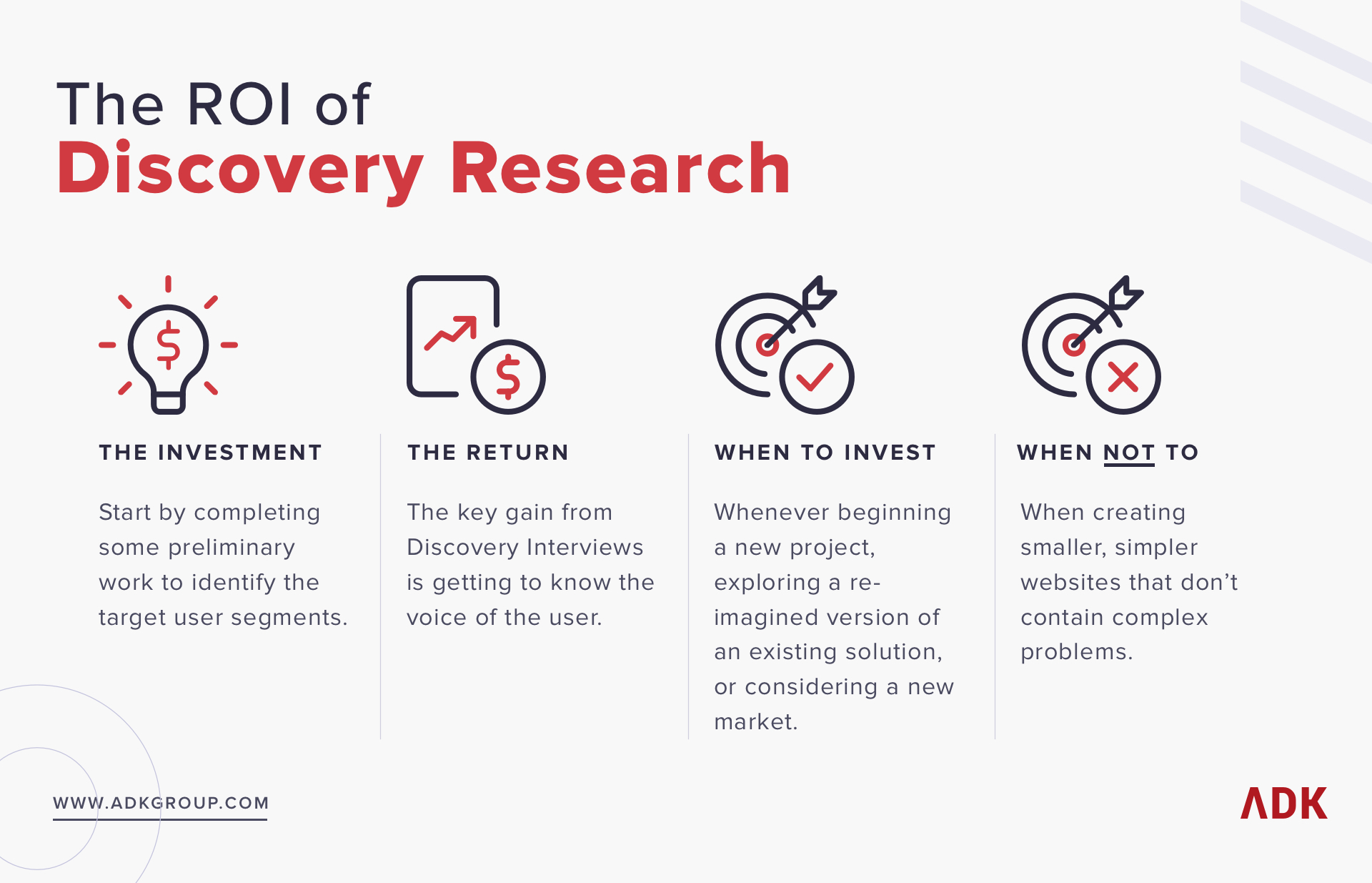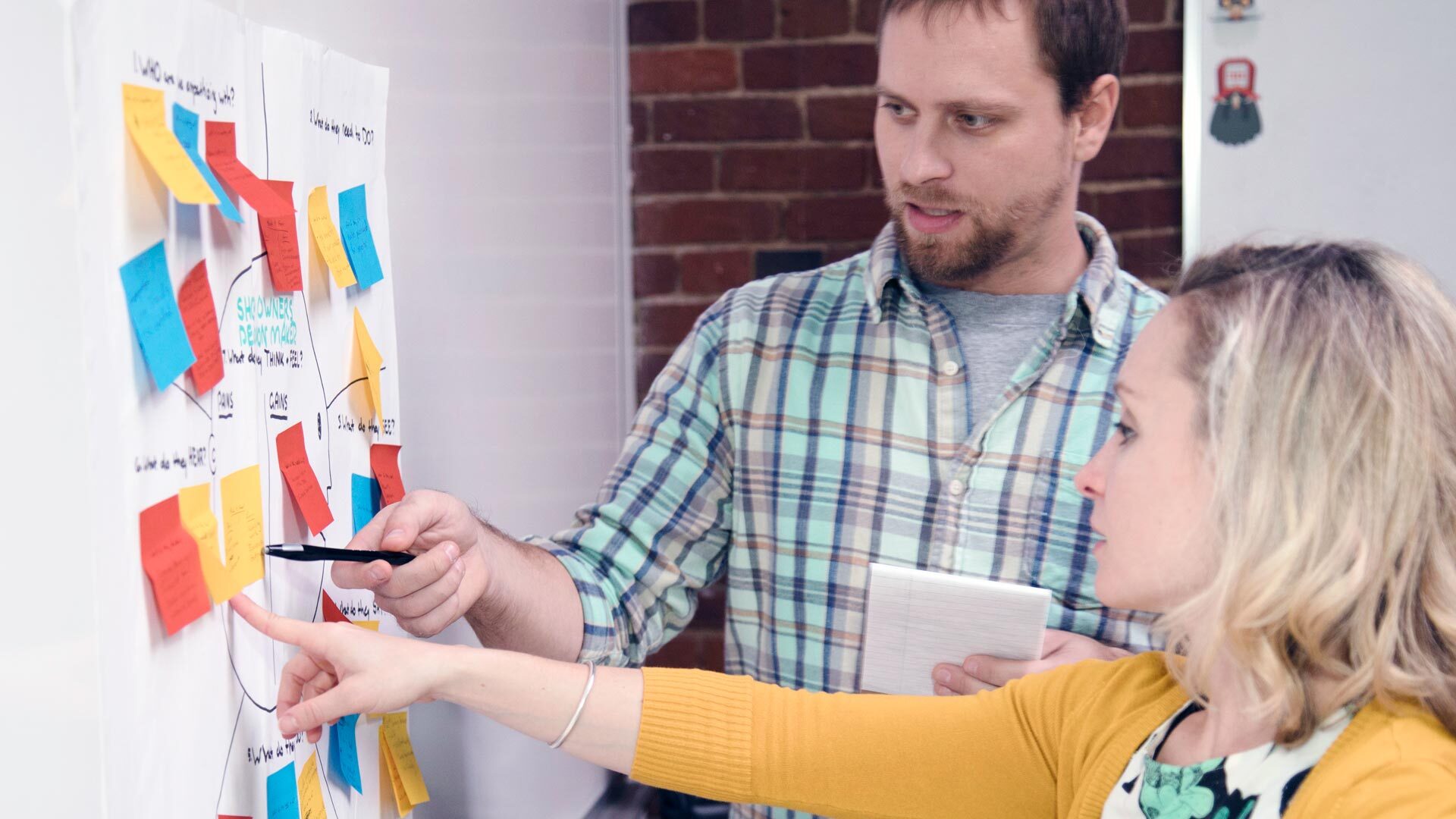How Do You Justify the Spend on User Research?
Let’s be honest. Everyone likes the idea of user research. More information is rarely a bad thing but how do you justify the time and cost associated with it? What are you really going to gain by conducting user research into your app development? In our three-part blog series we will help you identify the justification of when it makes sense to invest and when it makes no sense at all to invest in user research.
So what really is user research anyway? User Research is the opportunity to identify and clearly understand who your potential end-users of your product are, what need does your product fulfill for them, and how your identified users will interact with the product.
Is it Even Worth Testing?
It can all feel so daunting conducting the nuances of user research; observation, testing, task analysis, methodologies, etc. It costs time and money and can feel counterproductive to put a pause on your design and development process that you have worked already so hard on. And, do you honestly want to hear what others think about your designs?
We ask the exact same questions. We took a closer look at the different ways we conduct user testing and research to help you answer these very questions.
The ROI of Discovery Research
First, let’s take a look at Discovery Research. This typically happens at the very beginning of a project (during the aptly titled Discovery Phase) and is meant to answer foundational questions you have about your users.

Caption test
The Investment in Discovery Research:
Start by completing some preliminary work to identify the target user segments. This helps to answer the question of “whose needs are we working to solve for?”. If personas don’t already exist it’s worth roughly defining user behaviors, motivations, and compelling forces.
Once the right audience has been identified, it’s a matter of conducting user interviews. These can be short, 20-30 minute conversations. We typically aim to talk to three of each identified user segment. Optionally, more quantifiable data can be collected in the form of support requests, product reviews, and twitter commentary, if your product already exists and is in fact, collecting this information.
The Return on Discovery Research:
The key gain from Discovery Interviews is getting to know the voice of the user. The power of storytelling to enable empathetic design can not be understated. Stories, pain points, and use cases noted in these early interviews tend to inform the entire product team for the remainder of the project and into launch. These up front decisions have enormous implications for whether your new technology will be adopted or not. More practically, this research should confidently answer the questions: ‘Who are the users?’, ‘What pain points are they experiencing?’, and ‘What are the main problems we need to solve?’.
That last question is key. If the perceived problem is mis-identified at the start, it is very easy to spend a lot of time and resources running down the wrong path. Sometimes the biggest value-add is to identify areas for divestment. Many times, we’ve been able to pivot away from costly endeavors that sounded like good ideas because we learned early on that those ideas actually held low value in the eyes of the target audience.
When To Invest in Discovery Research:
It’s wise to invest in Discovery Research whenever beginning a new project, exploring a re-imagined version of an existing solution, considering a new market, or when you believe there’s untapped opportunity but haven’t yet identified the exact problem or potential solution.
When Not To Invest in Discovery Research:
Refrain from this type of research when there is a tangible proof-of-concept that already exists (for example a pilot program using a suite of disjointed platforms). In these scenarios we rely on the input of the solution creators (internal stakeholders). Also, hold off on investing when creating smaller, simpler websites that don’t contain complex problems.
In our next blog post we will take a closer look at Concept Validation. Is your idea really going to fly?
Until then, you can see examples of the ROI of discovery research in our case studies!
